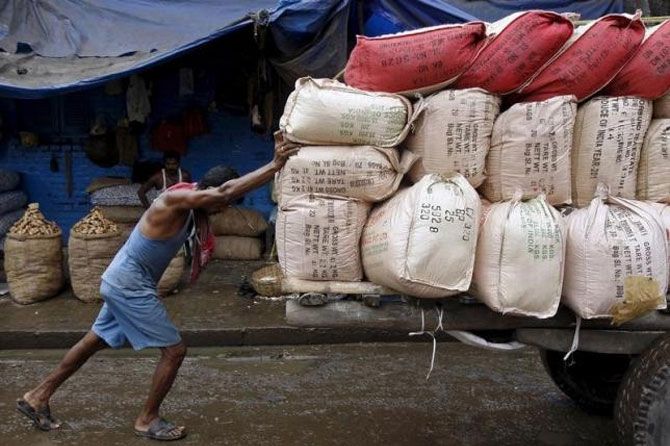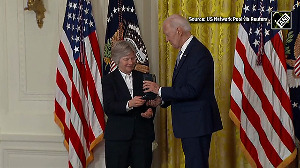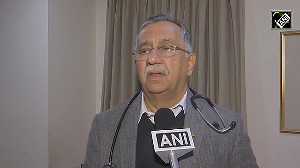 Draft bill, being negotiated, says they won’t be tax-deductible any more
Draft bill, being negotiated, says they won’t be tax-deductible any more
Dealers in apparels, fast-moving consumer goods and pharmaceuticals may be in for an unpleasant surprise as trade discounts or incentives to wholesalers and agents to push sales targets might not be deducted from turnover to be taxed under the proposed goods and services tax regime.
The draft GST law, being discussed among the empowered committee of state finance ministers, includes these incentives in the taxable value of goods and services, ‘transaction value’ in the jargon.
Currently varying rules on value added tax across states treat after-sales discounts differently but most exclude these from transaction value.
“The move will essentially hit wholesale dealers or, say, travel agents who are given incentives on volume targets.
"If they achieve or exceed a particular target, the discounted value will not be considered for GST but the full value,” said Saloni Roy, senior partner, Deloitte.
Trade discounts need not be always allowed at the time of sale and may be allowed at a later date, at the end of the month or quarter if the discount computation was not possible at the time of making the invoice.
“Generally, post-sale discounts are provided by large FMCG companies to distributers. Some pieces of state legislation already have this provision where after-sale discount does not lower tax liabilities, unless part of the invoice at sale,” said Gautam Khattar, partner, PwC.
Another expert argues such a move will successfully plug tax evasion loopholes, as it is difficult to monitor or track a transaction not invoiced at the time of sale.
“Such incentives are given by companies to improve offtake of slow-moving goods. This is largely used in the apparel sector,” said Arvind Singhal of Technopak Advisers.
The GST bill’s draft says tax would be levied on Maximum Retail Price rather than on the discounted price.
This was labelled discriminatory and harsh by many.
They argue discounts on non-packaged items or services, which do not have an MRP, will lower tax liability, while the incentives on packaged items will be taxed at the MRP.
“To say you will be charged GST on MRP is harsh and discriminatory. If I stay at a hotel and avail of a discount, my tax will be on the discounted value. While in case I buy a packed item, I will have a higher outgo, irrespective of the discount I availed,” notes Vivek Mishra, leader,indirect taxes, PwC India. Satya Poddar of EY said the provision in the draft GST was robbery of taxpayers.
“This is a major flaw. Many dealers have communicated this to the government,” he added.
The draft bill also included job work to be treated as supply of services.
Any treatment or process applied to another person’s goods is a supply of services, the draft says.
The GST system has an inbuilt mechanism to provide reimbursement of taxes paid on inputs.
The central GST input tax credit cannot be used for payment of state GST and vice versa.
However, these could be used to pay Integrated GST, levied on inter-state supply of goods.
Also, traders will be able to use the integrated GST input tax credit for payment of IGST, state GST and central GST.
The input tax credit would not be eligible for motor vehicles not used for commercial considerations, fuel such as petrol, diesel, goods or services for personal use.
Also, it would not be provided for goods and services used in the execution of a works contract for construction of immovable property. The draft law does not have a provision so far for the interest rate for failure of payment of tax within the prescribed time.
DRAFT GST BILL
- Discounts prior to or at time of sale mentioned in invoices will escape the tax. These are given for bulk supply
- Currently, treatment varies across states
- Provision for GST to be levied on maximum retail price rather than on the discounted price faces strong dissent
The image is used for representational purpose only. Photograph: Rupak De Choudhuri/Reuters












 © 2025 Rediff.com -
© 2025 Rediff.com -